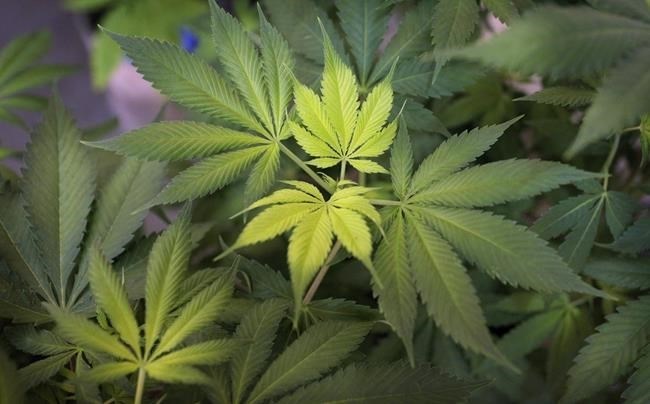
FILE PHOTO - A marijuana plant at the AmeriCanna Edibles facility on Tuesday, April 25, 2017 in Boulder, Colo. Canada's police services say there is zero chance they will be ready to enforce new laws for legalized pot by next summer.
Image Credit: THE CANADIAN PRESS/Joe Mahoney
September 13, 2017 - 6:00 AM
OTTAWA - Canada's police services say there is zero chance they will be ready to enforce new laws for legalized pot by next summer.
That was the main message delivered to MPs on the House of Commons health committee Tuesday which is meeting this week to study federal legislation to legalize marijuana.
Officials from the Canadian Association of Chiefs of Police, Ontario Provincial Police and the Saskatoon Police Service said they need more time to properly train officers about the new laws and more than double the number of police officers who are certified to conduct roadside drug impaired driving testing. There also needs to be more time for public education, the police said.
If the government doesn't postpone the start date, there will be a window of six months to a year when police aren't fully ready, which will allow organized crime to flourish, said OPP deputy commissioner for investigations and organized crime Rick Barnum.
"If legislation is ready to go July 2018, policing will not be ready to go August 1," Barnum said. "It's impossible. The time, the damage that can be done between the time of new legislation and police officers ready to enforce the law in six months or a year can make it very, very hard to ever regain that foothold."
Barnum said the Canadian Association of Chiefs of Police officially wrote to the government this week to request a delay in implementation. The Liberals have pledged pot will be legal in Canada by the summer of 2018.
The police also want Ottawa to reconsider allowing individuals to grow up to four of their own marijuana plants because it will be difficult and expensive to enforce and provide an additional way for young people to get access to pot.
Barnum said with legal options for buying pot there is no need to open the door to additional headaches of policing legal home grow operations.
The committee also heard from a number of U.S. experts involved in implementing legalized marijuana in states like Colorado and Washington. Andrew Freedman, who was until recently Colorado's director of marijuana policy, said four plants isn't a lot but he warned officials will need to write laws in such a way to prevent people from grouping their four-plants to make a major marijuana production stream.
Freedman also said the home grow allowances in Colorado were among the most problematic for police and public safety.
"It is where we've seen organized crime come into Colorado, and it's frankly where we've seen violent crime come into Colorado," Freedman said.
Kevin Sabet, head of one of the U.S.'s leading anti-legalization advocacy groups and who helped draft the national drug strategy for President Barack Obama's administration, said he doesn't think Canada should legalize pot at all but if that train has left the station, Canada at the very least needs to slow it down.
"The only people that benefit from speed in this issue are the business people that are really waiting to get rich," he said. "There is no benefit to going fast on this issue at all."
Last week the Liberals announced $274 million over the next five years to help with police training and combat organized crime's involvement in marijuana.
While legalization of recreational pot will lighten their workload — there were 16,000 charges laid for simple possession in 2016 — police said it brings a whole host of other problems, including an expected rise in complaints about neighbours owning pot plants, suspected grow-ops, and robberies and home invasions.
The police request for a delay comes after Canada's premiers warned the federal government in June that they may not be ready with provincial laws and regulations to accompany the federal bill by next summer. Thus far the government has not changed course.
Bill Blair, the former Toronto police chief who is now the parliamentary secretary to the minister of justice and led the government's work to craft its pot legalization bill, said Tuesday he doesn't have authority to say yes or no to a delay but suggested he doesn't think one is necessary.
"I think it's important that we focus on getting this job done as quickly as we are able," he said. "We have established a pretty tight timeline, a difficult timeline but that challenge is I think an important one and everybody is working hard to get it done."
-follow @mrabson on Twitter.
News from © The Canadian Press, 2017